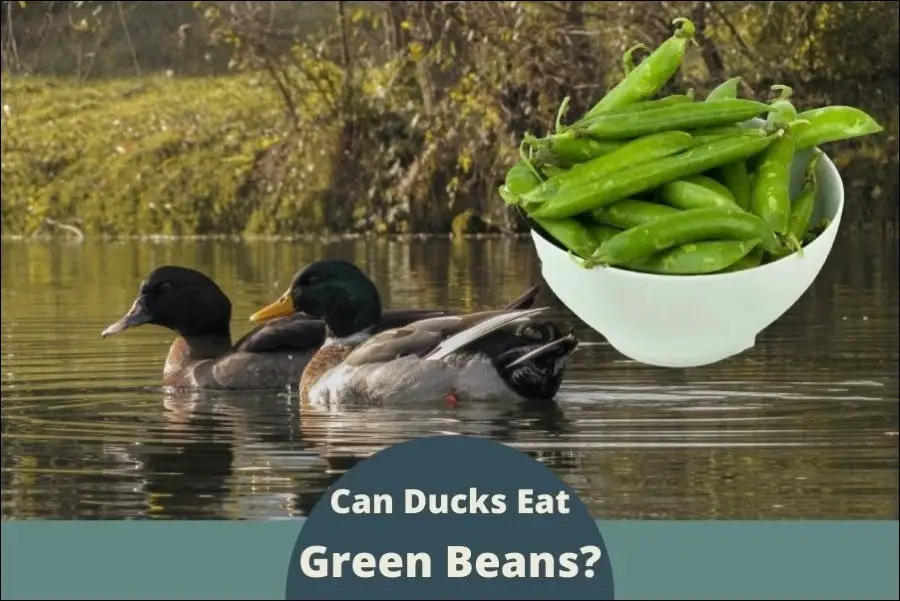
As someone who often thinks about what to feed my ducks at home or the ducks at the park, beans always come to mind. Beans are full of nutrients and taste – it’s weird we aren’t incorporating more beans in our lives. Green beans are easy to grow yourself and don’t require much effort. But are beans for everyone?
Ducks can eat green beans, and they love to eat them. Green beans provide a sweet taste, refreshing feeling, and various nutrients. Ducks love to eat green beans floating in the water and eat them in a matter of seconds. You will need to cook and cut the green beans into smaller pieces before serving.
Green beans come in various shapes and colors, for example, String beans, Romano beans, Long beans, French green beans, and Wax beans. The duck can eat all of them. It’s crucial you cut the beans into smaller pieces to decrease the risk of suffocation.
Ducks don’t chew their food and swallow everything whole. Try to cut them into 1″ pieces (2.5cm) to be safe. I usually use scissors and clip a lot of green beans at the same time.
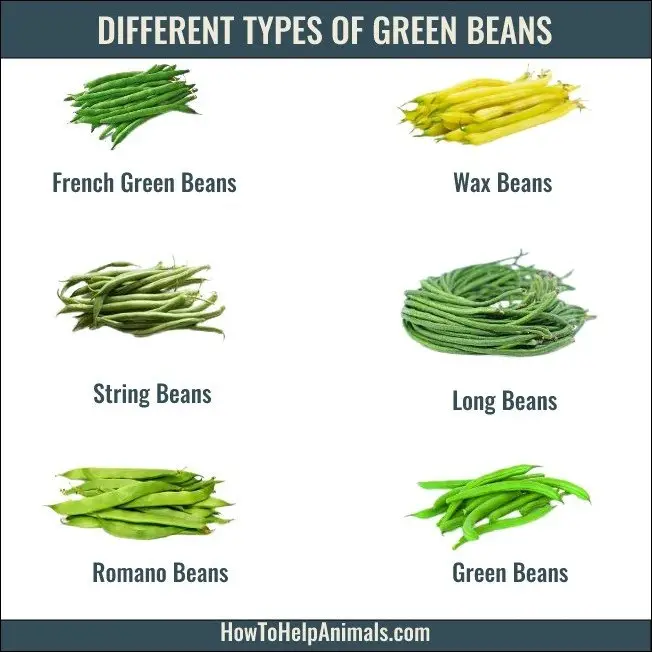
Can ducks eat green beans?
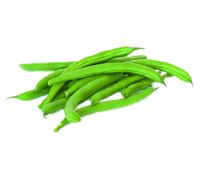
Ducks can eat green beans and will thrive on them. Green beans contain calcium, potassium, iron, magnesium, vitamin b6, and vitamin c. While dried beans aren’t suitable for ducks, they can still eat green beans. The kind you grow yourself, as well as the green beans you buy at the store. However, it would help if you offered green beans in moderation since their water content is pretty high. Over 90% of green beans are water. Consuming too much water may lead to diarrhea for your ducks, causing dehydration, leading to kidney problems. You must cook the green beans. Otherwise, they contain hemagglutinin and cause food poisoning.
Green beans compared to similar vegetables
| Nutrient (unit) | Green beans | Corn | Wax beans | Green peas |
|---|---|---|---|---|
| Weight standard (g) | 100 | 100 | 100 | 100 |
| Energy (kcal) | 27 | 125 | 32 | 60 |
| Energy (kJ) | 113 | 524 | 136 | 253 |
| Carbohydrates (g) | 2,1 | 22,07 | 4,7 | 7,3 |
| Fat (g) | 0,4 | 1,61 | 0,1 | 0,4 |
| Protein (g) | 2,06 | 3,88 | 1,8 | 4,4 |
| Fiber (g) | 3,4 | 2,88 | 2,7 | 4,9 |
| Water (g) | 91,3 | 68,8 | 90 | 82 |
| Alcohol (g) | 0 | 0 | 0 | 0 |
| Ashes (g) | 0,7 | 0,77 | 0,7 | 1 |
| Monosaccharides (g) | 2,2 | 0,7 | 1 | 0,2 |
| Disaccharides (g) | 0 | 2,6 | 0,4 | 3,4 |
| Sucrose (g) | 0 | 2,3 | 0,4 | 3,4 |
| Sugars (g) | 2,2 | 3,3 | 1,4 | 3,6 |
| Total saturated fatty acids (g) | 0,09 | 0,2 | 0,03 | 0,07 |
| Fatty acid 4: 0-10: 0 (g) | 0 | 0 | 0 | 0 |
| Lauric acid C12: 0 (g) | 0 | 0 | 0 | 0 |
| Myristic acid C14: 0 (g) | 0 | 0 | 0 | 0 |
| Palmitic acid C16: 0 (g) | 0,08 | 0,16 | 0,03 | 0,06 |
| Stearic acid C18: 0 (g) | 0,01 | 0,03 | 0 | 0,01 |
| Arachidic acid C20: 0 (g) | 0 | 0,01 | 0 | 0 |
| Total monounsaturated fatty acids (g) | 0,01 | 0,48 | 0 | 0,03 |
| Palmitic acid C16: 1 (g) | 0 | 0 | 0 | 0 |
| Oleic acid C18: 1 (g) | 0,01 | 0,47 | 0 | 0,03 |
| Total polyunsaturated fatty acids (g) | 0,08 | 0,7 | 0,05 | 0,22 |
| Linoleic acid C18: 2 (g) | 0,08 | 0,67 | 0,02 | 0,18 |
| Linolenic acid C18: 3 (g) | 0,1 | 0,03 | 0,03 | 0,04 |
| Arachidonic acid C20: 4 (g) | 0 | 0 | 0 | 0 |
| EPA (C20:5) (g) | 0 | 0 | 0 | 0 |
| DPA (C22:5) (g) | 0 | 0 | 0 | 0 |
| DHA (C22:6) (g) | 0 | 0 | 0 | 0 |
| Tiamin (mg) | 0,12 | 0,15 | 0,08 | 0,16 |
| Riboflavin (mg) | 0,09 | 0,08 | 0,13 | 0,08 |
| Vitamin C (mg) | 8 | 7 | 21 | 10 |
| Niacin (mg) | 0,8 | 1,7 | 0,6 | 0,7 |
| Niacin equivalents (NE / mg) | 1,1 | 2,09 | 0,9 | 1,43 |
| Vitamin B6 (mg) | 0,06 | 0,18 | 0,1 | 0,06 |
| Vitamin B12 (µg) | 0 | 0 | 0 | 0 |
| Folate (µg) | 58 | 97,5 | 36 | 44 |
| Retinol (µg) | 0 | 0 | 0 | 0 |
| Vitamin A (RE/µg) | 21 | 17,5 | 4,6 | 33,3 |
| β-Karoten (µg) | 179 | 168 | 55 | 400 |
| Vitamin D (µg) | 0 | 0 | 0 | 0 |
| Vitamin E (mg) | 0,37 | 0,08 | 0,45 | 0,04 |
| Vitamin K (µg) | 43 | N/A | N/A | N/A |
| Phosphorus (mg) | 38 | 105 | 38 | 67 |
| Iodine (µg) | 2 | 0,5 | 0,2 | 3 |
| Iron (mg) | 1,04 | 0,51 | 1,1 | 1 |
| Calcium (mg) | 52 | 2,6 | 45 | 20 |
| Potassium (mg) | 286 | 294 | 210 | 73 |
| Magnesium (mg) | 25 | 39 | 25 | 17 |
| Sodium (mg) | 0 | 0,3 | 6 | 200 |
| Salt (g) | 0 | 0 | 0,02 | 0,5 |
| Selenium (µg) | 1 | 0,5 | 0,5 | 0,3 |
| Zinc (mg) | 0,4 | 0,5 | 0,2 | 0,7 |
🐡 Ducks are omnivores and eat both vegetables and meat. Check out what meat you can feed ducks here.
Can ducklings eat green beans?
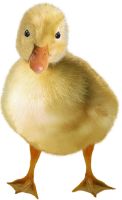
Ducklings can eat green beans after they’ve turned four weeks. They require a high amount of protein received from a special duckling food in the early stage of life. You can incorporate green beans into their diet increasingly after the first four weeks. I suggest you give them the green beans in small portions weekly and increase over time. It’s extra important to cook the beans before serving them, as well as cutting them into tiny pieces.
Can ducks eat uncooked green beans?
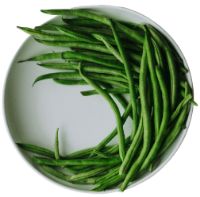
Ducks can’t eat uncooked green beans. Raw beans contain a lectin called hemagglutinin which causes food poisoning. Hemagglutinin is so severe; it causes food poisoning in humans too. If you want to be on the safe side, you will need to cook the beans for a minimum of 10 minutes. The water must reach boiling point. Otherwise, the lectin actually increases if exposed to heat lower than 212° F / 100° C.
🥬 Vegetables are ducks most favorite thing. Check out our resource what vegetables you can feed ducks with.
Can ducks eat cooked green beans?
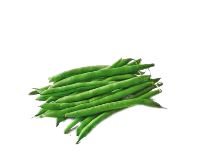
Ducks should only be eating green beans that are cooked. Otherwise, they consume a lectin called hemagglutinin, causing food poisoning.
You must cook the beans in water reaching boiling point; otherwise, the lectin increases. Boil them for at least 10 minutes and let them cool and dry.
Can ducks eat the green bean pods?
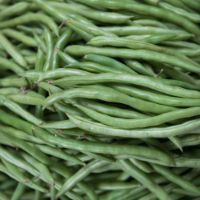
Ducks can eat both the green beans inside as well as the pod. The pod is pretty tough to chew, so it would help the ducks if you cut the pods into smaller pieces before serving. Otherwise, they will have a hard time swallowing them.
Can ducks eat frozen green beans?
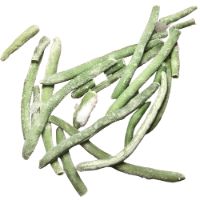
Ducks can eat frozen green beans if you boil them first. Frozen green beans haven’t been cooked before they were frozen. You will need to boil them for at least 10 minutes before serving them to ducks. Otherwise, there’s a risk of food poisoning due to the lectin in the beans.
🍇 Not only do ducks like to eat green beans – they love to eat fruit as well. Check out what fruits you can feed ducks here.
Can ducks eat canned green beans?
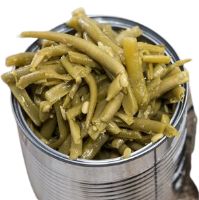
Canned green beans are usually pre-cooked before being added into the container and could be eaten by ducks. However, most canned foods contain added sugars, salts, or preservatives. In most cases, for green beans, there is salt added to the can. If you can find canned green beans where there only is water and green beans, feel free to offer them to your ducks. However, you will need to rinse the beans first.
Can ducks eat moldy or rotten green beans?
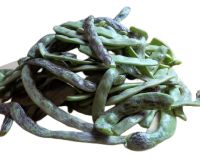
You should never give ducks any food that is either moldy or rotten. Mold is toxic and can be lethal for them. If the food is either stale or rotten, it would be best to add it to your compost.
🍍 Do you have leftovers? Check out what human food you can feed ducks with.
Vegetables similar to green beans you can give to your ducks
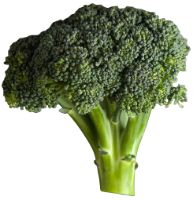
If you want to give your ducks healthy food but don’t have any green beans at home, there are alternatives.
How do you cut green beans for ducks?
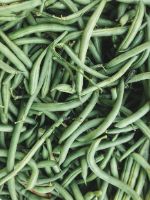
Cutting green beans is very easy doesn’t require much effort. Depending on the number of green beans, the preferred method varies.
For a smaller amount like a bundle of green beans, I usually use scissors and cut the entire bunch at once. But if there is a more considerable amount, I go with the food processor.
When cutting green beans for ducks, the size to aim for is 1″. Larger than that is a safety risk and a choking hazard.
Preparing green beans is fun with kids, and if they are allowed to use scissors, why not let the green beans to them?
Cutting green beans with scissors
Cutting green beans with a food processor
Cutting green beans with a knife
🌿 Growing some herbs? Learn what herbs ducks can eat here.
Safe ways to feed green beans to ducks
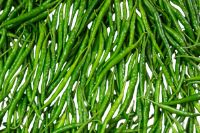
There are different ways to give green beans to your ducks, and it’s pretty simple to do so in a safe manner. I have five different ways I usually switch between to keep it interesting for both my ducks and the ducks at the pond in the park.
1. Mix in with their regular food
This is the most common way I do it. I cut and boil a week’s worth of green beans on Sunday and freeze it in separate bags for each day. The frozen bags are defrosted in the fridge during the night and given in the morning with the duck’s other food. Green beans are excellent to mix with their duck pellets since they are pretty alike.
2. Throw the beans on the ground
If you want to keep your ducks occupied for a while, this is a great way. Duck’s instincts are to forage for food. If you throw today’s food in the grass for them to look for, you will keep them entertained for a bit. Beware, there’s a risk with this. Suppose they cannot find all foods, the risk of attracting pests and other animals increases. So, cut and cook the green beans, throw them out in a place your ducks like to scavenge. This is the method I also use when visiting the park to see the ducks in the pond.
3. Add the green beans to water
Ducks enjoy eating their food in water, and green beans are no exception. After you cut and cooked the green beans, you can add them to a bucket of water and feed them. Please do not add the green beans directly to their bathing water. If they miss any bean, it may cause algae growth. The same goes for the ducks in the park. It would be better to throw the beans to the ground in their case.
4. Hide the green beans in mashed potatoes
Mashed potatoes are a favorite among my ducks, and they get it once a week. I usually mix in a variety of other vegetables depending on what nutrients they need to increase. Broccoli, kale, carrots, peas, and other vegetables ducks can eat are used often.
It’s important not to use any dairy, salt, peppers, or other stuff when making mashed potatoes for ducks. The vegetables, the water used when boiling the vegetables, and a potato masher is enough to succeed with your mashed potatoes.
An easy way to prepare multiple vegetables, and at the same time, give your ducks a treat is to make a smoothie bowl. Smoothie bowls are significantly appreciated. I usually add various fruits to make it sweet, which means I only give it on special occasions. Adding green beans to it will increase the nutrients but also the water content. Ensure to cook the beans before adding them to the blender. I typically add some of these fruits and vegetables to the duck’s smoothie bowl:
5. Add the green beans to a smoothie
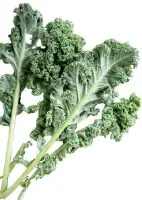
🐇 Ducks also like to eat fodders made for other animals like rabbits. Check out what fodders ducks can eat.
Unsafe ways to avoid when feeding green beans to ducks
It’s easy to make mistakes in the beginning. I’ve made many different mistakes when feeding my ducks throughout the years. There are five mistakes you can easily avoid when feeding green beans to your ducks.
1. The green beans aren’t cut enough
The most common unsafe way when feeding green beans is the beans aren’t cut small enough. When cutting beans, you should try to aim for at least 1″ piece. Otherwise, the choking risk is too high. Providing the ducks with a water source nearby or feeding them the beans in water is an excellent way to help them swallow. You can use a food processor or cut the beans with scissors. You can use scissors made for cutting vegetables to speed up the process.
2. The green beans have started to rot or grow mold
It’s never a good idea to feed animals with food that has started to grow mold or rot. Moldy and rotten food should be thrown out or added to the compost. Mold is toxic and can end up killing your ducks and other animals.
3. Feeding the beans in the same water they swim
If you have a dedicated pond or lake the ducks swim in, it would be best to let the food out of it. It’s better to feed them the green beans on land or in a bucket filled with water. If you throw food into the pond, it will boost algae growth.
4. The green beans aren’t boiled
It’s necessary to boil the green beans and other beans before serving them to your ducks. Ensure the water has reached boiling point, and you let the green beans cook for at least 10 minutes. Uncooked beans contain a lectin called hemagglutinin which causes food poisoning.
5. Not feeding the green beans in moderation
Green beans are pretty high in water content. (Over 90%). Feeding ducks food with a higher content can be risky. If the duck consumes too much water, they might suffer from diarrhea. Diarrhea leads to dehydration and may cause kidney failure.
How often should I feed green beans to my ducks?
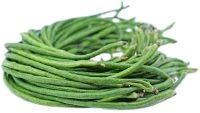
You can feed green beans as often you would like, as long as you make the proper adjustments with other foods in their diet. If you increase the amount of green beans in their diet, you will need to decrease something else. Since the water content in green beans is pretty severe, you might want to increase the amount of diarrhea inhibiting foods. Examples are oats, bananas, applesauce, rice, and potatoes. I try to give green beans to my ducks two to three times a week. Mainly because they are so easy to grow yourself and because they seem to love the taste.
How much green beans can I feed my ducks?
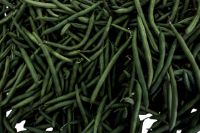
When feeding food that contains a high amount of water, it’s always good to feed in moderation. It’s also vital to adjust other foods, so they complement each other nutrient-wise and chemically. For example, I always add oats when giving my ducks green beans since oats inhibit diarrhea. Since oats are pretty high in calories, I will need to decrease something else. The amount of green beans you can feed your ducks is determined by what other foods are found in your duck’s diet. I feed my ducks’ green beans two to three times per week and usually give 1 cup per duck. One green bean weighs around 3 to 4 grams each, which is roughly 50 grams per duck.
How to store green beans for my ducks?
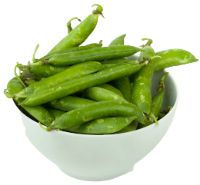
I usually store green beans in the freezer and move them to the fridge for defrosting the night before feeding.
When I cut all vegetables on Sundays, I also cook them to not have to be cooking right before feeding.
I add all green beans in reusable plastic bags and separate them each day.
What goes well with green beans?
Some foods taste better when they are paired with green beans. If you would like to give duck connoisseurs a tasty journey, you might want to consider pairing the green beans with some of these.
Foods that go well with green beans that ducks can eat:
- Potatoes
- Red peppers
- Mushrooms
- Fennel
- Tomatoes
- Carrots
- Squash
Foods that go well with green beans that ducks can not eat:
- Lemon
- Onion
- Shallot
- Garlic
Health benefits from feeding green beans to ducks
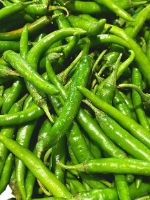
Green beans carry a lot of nutrients and benefit ducks in many ways. Calcium, potassium, iron, vitamin c, and vitamin a can be found in green beans. Ducks benefit from a moderated amount of green beans in their diet. A too high amount of green beans could force diarrhea to develop.
Calcium in green beans for ducks
Calcium is one of the most important minerals in the duck’s diet. Calcium is essential for the production of eggshells and eggs in general. It also provides the duck with strong bones, which are crucial for birds in general, and ducks in particular. Ducks don’t fly as much as other birds and rely on their legs more.
Potassium in green beans for ducks
Potassium is essential in the duck’s body when it comes to cell health and fluid balance. Potassium keeps the nerve cell and muscle cells healthy and the fluid balance in the cells leveled.
Iron in green beans for ducks
Iron is required in the duck’s body for the production of hemoglobin. Hemoglobin is a must for providing oxygen to different body parts. An iron deficiency would lead to stiffness and fatigue.
Vitamin C in green beans for ducks
Vitamin C is an antioxidant that helps to improve the immune system and repair damaged body tissue. A vitamin c deficiency would lead to fatigue, depression, and also problems healing wounds.
Vitamin A in green beans for ducks
Vitamin A is needed for vision, skin, and mucous membranes to function normally. Mild deficiency can cause night blindness, and severe deficiency results in decreased resistance to infections.
Conclusion
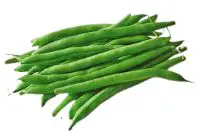
Ducks can eat beans, and they like it. Green beans provide a sweet taste and various nutrients at the same time.
Both ducks and ducklings can eat green beans. Ducklings need to wait until they have turned 4 weeks before they can taste the delicious bean. Until then, they are stuck with their duckling feed.
Green beans are a collective name for different types of beans. For example, String beans, romano beans, long beans, french green beans, and wax beans.
It is important you both cook and cut the beans before feeding them to your ducks. Otherwise, they could be food poisoned from the hemagglutinin or suffocate from the large pieces.
The water content in green beans is pretty high at over 90%, which means you should feed them in moderation. A too high intake of water-rich foods may lead to diarrhea, causing dehydration.
You should never feed them:
- Uncooked beans
- Canned beans in salt
- Frozen bean that hasn’t been defrosted
- Moldy or rotten beans
You can cut the green beans in three ways:
- Scissors
- Food processor
- With a knife
Five safe ways to give your ducks green beans:
- Mix in with their regular food
- Throw the beans on the ground
- Add the green beans to water
- Hide the green beans in mashed potatoes
- Add the green beans to a smoothie
Five unsafe ways to give your ducks green beans:
- The green beans aren’t cut enough
- The green beans have started to rot or grow mold
- Feeding the beans in the same water they swim
- The green beans aren’t boiled
- Not feeding the green beans in moderation
You can feed green beans as often you would like, as long as you do the proper adjustments with other foods in their diet.
The amount of green beans you can feed your ducks is determined by what other foods are found in your duck’s diet.
Calcium, potassium, iron, vitamin c, and vitamin a can be found in green beans.
